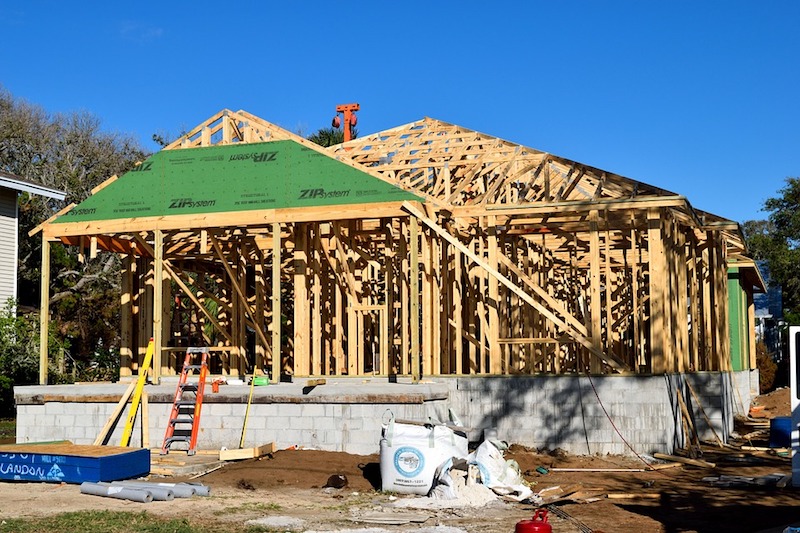The American Wood Council (AWC) released a new report on sound transmission, “Technical Report 15 (TR15), Calculation of Sound Transmission Parameters for Wood-Framed Assemblies.”
“Building codes stipulate minimum performance requirements regarding noise transmission through certain interior walls, partitions, and floor-ceiling assemblies,” according to AWC Vice President of Engineering Brad Douglas. “This initial version of TR15 summarizes how these code provisions apply to floor-ceiling assemblies and demonstrates how wood-framed floor-ceiling assemblies can comply with a calculation-based analysis approach.”
The 2018 International Building Code provides two parameters to establish minimum acoustical requirements: Sound Transmission Class (STC) and Impact Insulation Class (IIC). Compliance with these requirements may be demonstrated either through testing or through engineering analysis based on empirical test data from other similar assemblies.
The new report shows how to use the new AWC empirical model, and may be used for analysis of wood-frame floor-ceiling assemblies to determine compliance with STC and IIC sound transmission parameters.
Related Stories
Resiliency | Sep 3, 2024
Phius introduces retrofit standard for more resilient buildings
Phius recently released, REVIVE 2024, a retrofit standard for more resilient buildings. The standard focuses on resilience against grid outages by ensuring structures remain habitable for at least a week during extreme weather events.
Adaptive Reuse | Aug 28, 2024
Cities in Washington State will offer tax breaks for office-to-residential conversions
A law passed earlier this year by the Washington State Legislature allows developers to defer sales and use taxes if they convert existing structures, including office buildings, into affordable housing.
Adaptive Reuse | Aug 22, 2024
6 key fire and life safety considerations for office-to-residential conversions
Office-to-residential conversions may be fraught with fire and life safety challenges, from egress requirements to fire protection system gaps. Here are six important considerations to consider.
Building Materials | Aug 19, 2024
Federal 'buy clean' construction materials label program unveiled
The U.S. Environmental Protection Agency announced a plan for implementing a new label program to boost American production of more climate-friendly construction materials and products. The label program will prioritize steel, glass, asphalt and concrete.
Reconstruction & Renovation | Aug 19, 2024
Movement to protect historic buildings raises sharp criticism
While the movement to preserve historic buildings has widespread support, it also has some sharp critics with well-funded opposition groups springing up in recent years. Some opponents are linked to the Stand Together Foundation, founded and bankrolled by the Koch family’s conservative philanthropic organization, according to a column in Governing magazine.
Government Buildings | Aug 19, 2024
GSA posts new RFI for enabling energy efficiency, decarbonization in commercial buildings
The U.S. General Services Administration (GSA), in collaboration with the U.S. Department of Energy, recently released a new Request For Information (RFI) focused on enabling energy efficiency and decarbonization in commercial buildings. GSA wants to test innovative technologies through GSA’s Center for Emerging Building Technologies.
Urban Planning | Aug 15, 2024
New York City begins first large-scale porous pavement installation
New York City is installing its first large-scale porous pavement installation along seven miles of roadway in Brooklyn. The project will keep 35 million gallons of stormwater out of the combined sewer system each year, according to a news release.
Government Buildings | Aug 14, 2024
GSA releases updated standards to move federal buildings toward zero emissions
The U.S. General Services Administration (GSA) recently released updated building efficiency standards for federal buildings. The mandatory design and construction standards and performance criteria apply to 300,000 federal buildings.
MFPRO+ News | Aug 14, 2024
Report outlines how Atlanta can collaborate with private sector to spur more housing construction
A report by an Urban Land Institute’s Advisory Services panel, commissioned by the city’s housing authority, Atlanta Housing (AH), offered ways the city could collaborate with developers to spur more housing construction.
Energy Efficiency | Aug 9, 2024
Artificial intelligence could help reduce energy consumption by as much as 40% by 2050
Artificial intelligence could help U.S. buildings to significantly reduce energy consumption and carbon emissions, according to a paper by researchers at the Lawrence Berkeley National Laboratory.

















